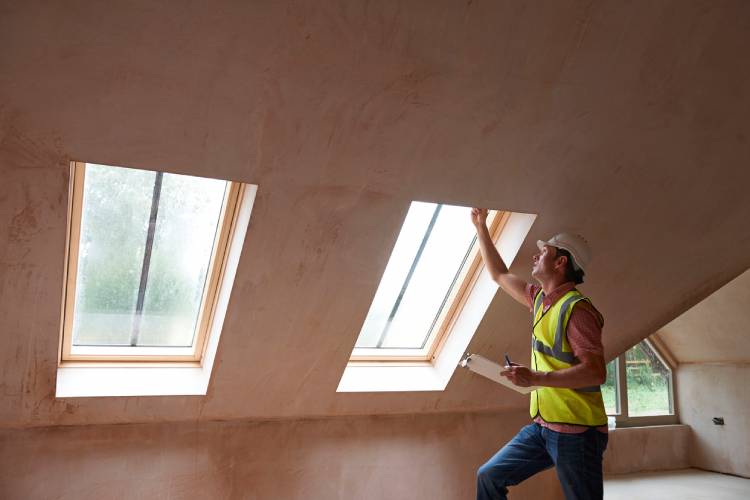Home Repairs & Finances: Here’s How to Navigate Both

HomeGuard Home Inspections Shares Tips for Navigating Repairs and Finances
A home remodel can be a challenging yet rewarding process. Many people get caught up in the vision of the final result without ever creating a plan to get there. There is a wide array of things to consider before the work gets underway but proper preparation can help alleviate unnecessary stress and unexpected costs.
Make a Timeline
Creating a timeline will help you understand the process as a whole as well as resolve any uncertainties when knowing what to expect. It doesn’t have to be fancy, just make small notes on your calendar so you know what’s coming next. When creating a timeline, you need to be realistic with expectations. Home repair jobs rarely line up exactly with the plan. One issue can delay a project multiple days, so if a contractor tells you two weeks, don’t be alarmed if it creeps into three or four.
Have your flooring, fixtures, countertops, etc. on hand before work begins. The job will be on hold until the materials are on site so choose and order your products before setting a start date. This will ensure everything moves faster and more efficiently.
Depending on the type of home repair you’re doing, understanding when to get a home inspection is crucial. Professional home inspectors can give you a clearer picture of what needs to be repaired so you can plan accordingly. Remember to also, expect the unexpected. Home inspections can alleviate some of this but home repairs are often met with unexpected obstacles so prepare mentally and financially for whatever may occur. If you haven’t done your due diligence beforehand, then you may be susceptible to unwanted stress and monetary strain.
Interview Numerous Contractors
Always shop around and weigh your options when choosing a contractor. It may seem like a drawn-out, tedious process but it could ultimately save you money and reduce stress. Make sure to choose a contractor with ample experience. Look through photos and reviews of finished projects to give you a baseline to start the decision-making process. You may want to help the person that’s just starting out but that may lead to an unsatisfactory finished product. With this in mind, consider hiring a more experienced worker for projects that may be more of a challenge.
We all know cost can be the determining factor when trying to make a final decision but try to balance what you can afford with how reputable and experienced the contractor is. The most skilled are often the most expensive, so narrow it down to three options that are in your price range.
Checking credentials is another way to qualify contractors. Find out if they hold all required licenses from your state and local municipalities along with any certifications they may have acquired. You can call your local government to inquire about what requirements are needed for specific jobs. In addition to any licenses or certifications, make sure they hold insurance policies. Not only should they have liability insurance but also worker’s compensation. This will protect your home in case of any damage as well as any workers that may get injured on the job.
Each estimate should be well documented and provide all pertinent information for the job. Examine all paperwork thoroughly to mitigate any potential issues or arguments when questions arise. Remember, once you’ve signed the work agreement, you are allowing them to enter your home and start the project. Unless the home repair is urgent, take a week or two to think before making a final decision.
Prepare Your Home
Before any workers show up on day one, you need to get your home in order so they can work safely and efficiently. Prepping the area may include moving furniture, appliances or any other belongings that could impede the work. Also, hanging plastic sheets around the work area will help contain the dust and dirt from spreading throughout your home. This will make cleaning up a lot easier when the job is complete.
Depending on what kind of home improvements you are doing, consider what rooms you won’t be able to access. You may be obstructed from a whole section of your home so make a plan to live around the project. If the work is being done in the bathroom you may need to make arrangements with a friend or family member to use theirs.
Get Your Finances in Order
The most important aspect of a home renovation or remodel is having the finances to pay for the job. The project won’t even get off the ground if you don’t have a plan to fund it. Know your budget and stick to it! Before even looking at products, devise a number, including a buffer for unexpected costs, you are not willing to cross.
Research financing that may be available for home repairs. You may have the cash on hand, but there are other options if needed. Depending on the type of project you are working on, a home equity line of credit might be a good option. Also, consider using a personal line of credit (PLOC) or a credit card. They appear to be fairly similar but understanding the differences between a PLOC and a credit card will help you make the right decision. There’s not just one way to fund a project, so weigh your options and choose what’s best for you.
A home can be many things; a shelter, a safe haven or a place where memories are made. Take the time to give it the proper attention it needs. Regardless of what your home improvement project includes, devising a plan will help ensure its success. Doing so will save time, money, and potential headaches. The ultimate goal is to be happy with the final result, but a smooth journey to get there can help solidify fond memories for a lifetime.



